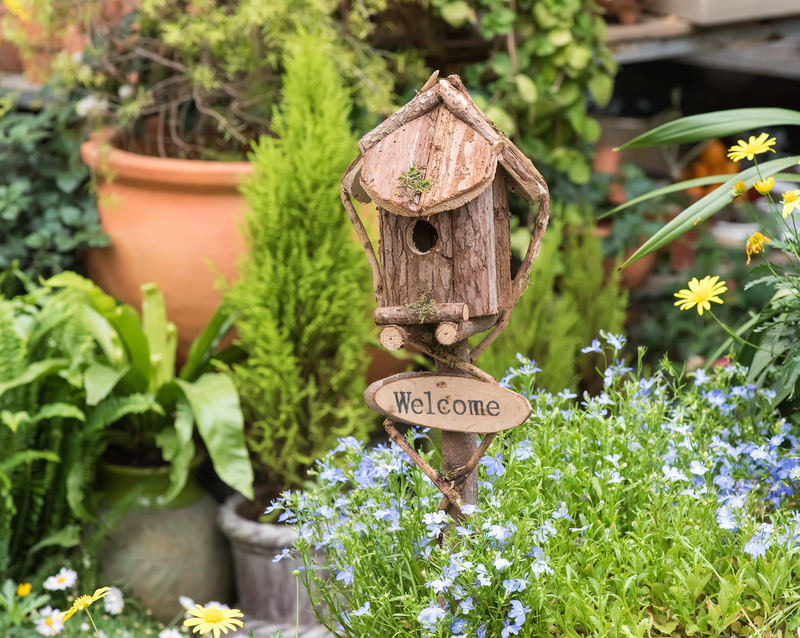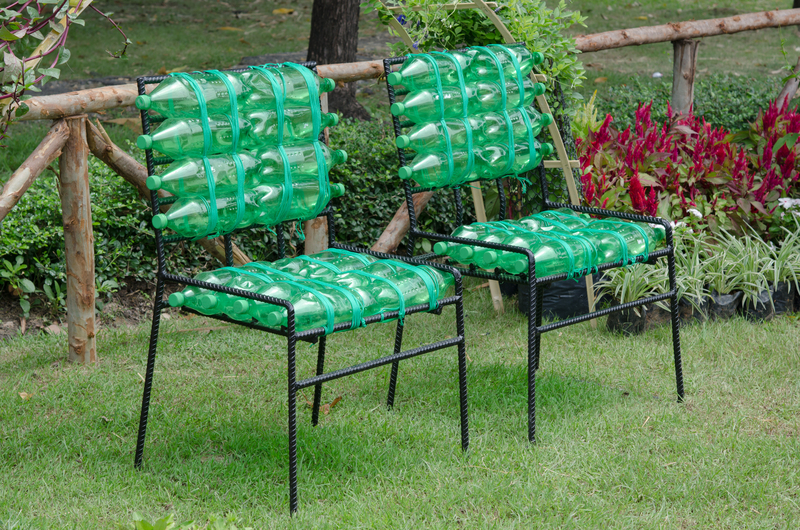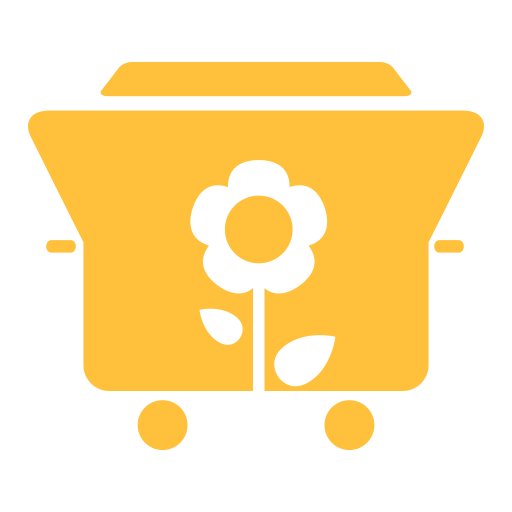Creative Ways to Introduce Kids to Recycling
Posted on 02/07/2025
Creative Ways to Introduce Kids to Recycling
Recycling has become an essential topic in today's world as we strive for sustainable living and environmental protection. Early education is crucial, and something as simple as introducing kids to recycling will help establish good habits for life. Using imaginative methods makes recycling fun and teaches children the importance of caring for their planet. If you're a parent, teacher, or guardian, you might wonder: How can we make eco-friendly activities meaningful and exciting for young minds? Below, we'll explore creative ways to teach kids about recycling, with practical tips, games, crafts, and community projects.
Why Introduce Kids to Recycling?
Educating children about recycling instills a sense of responsibility toward their environment. When children learn how to reduce, reuse, and recycle, they're not only protecting the Earth--they're also developing critical thinking, creativity, and teamwork skills. According to environmental experts, engaging lessons in sustainability boost eco-awareness and inspire lifelong green behavior. In this article, we'll share comprehensive strategies for introducing recycling to your kids in an engaging, hands-on way.

Fun & Interactive Ways to Teach Kids to Recycle
1. Set Up a Home Recycling Station
- Get Creative with Design: Let kids decorate recycling bins using paint, stickers, or recycled materials. Bright colors and cartoons can make bins more appealing and intuitive.
- Label Everything: Use images as well as words on labels for paper, plastic, metal, and glass. This supports younger children or pre-readers in sorting correctly.
- Practice Sorting: Invite kids to help sort the day's recyclables. Turn it into a sorting game or challenge by timing them.
- Tip: Explain why certain items can't be recycled, such as greasy pizza boxes or certain plastics. This knowledge helps kids make thoughtful decisions.
2. Create Upcycled Art Projects
Encouraging kids to reuse materials through art is a hands-on way to introduce the recycling concept. Here are some exciting recycling crafts for kids:
- Bottle Planters: Cut plastic bottles in half, decorate them, and use them to grow herbs or flowers.
- Cardboard Castles: Use boxes, tubes, and egg cartons to build imaginative castles or robots.
- Newspaper Collages: Ask children to cut out colorful images and letters from old newspapers to create unique art.
- Recycled Musical Instruments: Make tambourines out of lids, maracas out of plastic bottles filled with beans, or drums from tin cans.
Did you know? Art projects boost creativity, fine motor skills, and teach kids about repurposing waste.
3. Play Recycling-Themed Games
- Recycling Relay: Split the family or class into teams. Set up bins for paper, glass, plastic, and metal. Kids race to sort items into the right bins.
- Recycle or Trash? Show a series of household objects (real or pictures), prompting kids to decide if it should be recycled or thrown away.
- Recycling Scavenger Hunt: List recyclable items for kids to find around the house or playground. For each discovered item, discuss how it should be recycled or reused.
Games promote learning through movement and excitement, allowing concepts like recycling to become second nature through repetition and fun.
4. Visit a Recycling Center or Landfill
Field trips offer a memorable, real-world introduction to recycling. Children are often fascinated by big machines and seeing where their trash ends up. Arrange a guided tour of a local recycling facility or landfill. During the visit:
- Ask staff to explain how materials are sorted, cleaned, and recycled.
- Let children observe the processes and ask questions.
- Compare what happens to items that are recycled versus those sent to landfills.
This experience makes recycling tangible and helps children understand the positive impact of recycling on their community.
5. Storytime and Books About Recycling
Stories capture a child's imagination. Choose children's books about recycling or environmental care. Some popular titles include:
- "Michael Recycle" by Ellie Bethel
- "The Adventures of a Plastic Bottle" by Alison Inches
- "Why Should I Recycle?" by Jen Green
After reading, discuss the story and how the characters made eco-friendly choices. Encourage kids to act like the heroes in the books and practice recycling at home or school.
Making Recycling a Habit: Daily Practices for Kids
Lead By Example
Children learn by watching adults. Demonstrate your dedication to reducing waste by:
- Consistently sorting waste and recycling at home
- Choosing reusable bags, bottles, and containers
- Encouraging less packaging when shopping
- Discussing eco-friendly choices openly
Give Recycling Responsibilities
Assign each child a simple recycling task, such as collecting cans or rinsing jars. When kids take ownership, they feel important and invested in teamwork for the planet.
Make Learning Ongoing
- Update your recycling knowledge together--guidelines can change!
- Challenge kids with new recycling facts or trivia questions each week.
- Reward participation with praise or small incentives.
Engage Kids Through Community and School Initiatives
Classroom Recycling Programs
If you're an educator, set up a classroom recycling scheme. Let students be "recycling monitors" and rotate this important job. Visual progress charts and rewards can encourage involvement and accountability.
Organize a Recycling Drive or Competition
- School-Wide Challenges: Who can collect the most bottles or cans? Set a goal and celebrate when it's reached.
- Neighborhood Cleanups: Invite families to join a local park or street cleanup, sorting recyclables and spreading awareness as you go.
- Poster or Video Contests: Encourage kids to create educational posters or short videos about the value of recycling, then display or share the winners.
Connect with Local Organizations
Many recycling centers, environmental groups, and libraries offer free workshops, tours, or activities for children. Participate whenever possible to broaden kids' horizons and reinforce their learning.
Clever Recycling At-Home Projects
Recycling Science Experiments
- Compost in a Bottle: Use clear plastic bottles to create a mini compost bin. Let kids watch food scraps turn into nutrient-rich soil.
- Papermaking: Blend shredded newspaper with water and strain through a screen to make recycled paper sheets.
- Sorting Challenge: Prepare a mix of household waste and challenge kids to separate recyclables from non-recyclables, explaining the science behind the categories.
Eco-Friendly Chores
Show children how to turn recycling into a part of their chores. For example:
- Rinse recyclable containers before recycling.
- Break down boxes so they fit in the bin.
- Help transport recyclables for pickup day.
Give cheerful reminders and support as children deepen their recycling skills at home.
Utilize Technology and Media for Recycling Education
Watch Educational Videos and Cartoons
A wide selection of kid-friendly recycling videos and animated shows are available online. These resources make learning about environmental topics accessible and enjoyable. Choose shows that are age-appropriate and encourage follow-up discussions.
Play Recycling Apps and Digital Games
- Eco-conscious Apps: Interactive games teach about sorting and reusing items. Top choices include "Gro Recycling" and "Recycle Hero."
- Online Quizzes: Family quizzes test recycling knowledge, keeping skills sharp.
Technology can transform lessons about recycling into engaging digital experiences, combining fun with real-world impact.
Common Recycling Mistakes To Avoid
Sometimes, what we think is best for the planet can actually contaminate the recycling process. Teach children about "wish-cycling"--putting non-recyclable items in the bin hoping they will be processed. Some examples to discuss:
- Plastic bags clogging sorting machines (reuse or take them to special drop-off points)
- Ceramics or mirrors, which can't go with glass recyclables
- Food-contaminated containers, such as greasy pizza boxes
- Electronic waste that needs special handling
Tip: Always check your local recycling guidelines, as rules can be different in every city!

The Lasting Benefits of Teaching Kids About Recycling
Empowering Young Environmentalists
When you introduce your child to recycling and waste reduction at an early age, you empower them to make positive, informed environmental choices. Kids are our future leaders, and teaching them about sustainability ensures that they become thoughtful, responsible citizens.
Building Lifelong Eco-Friendly Habits
- Consistent recycling leads to less waste in landfills.
- Creative reuse and upcycling nurtures imagination and innovation.
- Community involvement makes environmental stewardship a shared goal.
Strengthening Family and Community Bonds
Working on green initiatives as a family or classroom is a wonderful way to bond over shared values. Whether you're crafting, sorting, or volunteering together, each small step sends a message: we care about the earth and each other.
Conclusion: Make Recycling Fun, Creative, and Inspiring for Kids
Introducing kids to recycling doesn't have to feel like a chore--in fact, it can be an adventure. With games, crafts, hands-on projects, and local involvement, you can teach kids the value of recycling in ways that stick. Start small, be consistent, and always encourage questions. Before long, your child will not just recycle, but inspire others to join them in protecting our amazing planet.
Ready to make a difference? Try out these creative recycling activities for kids and see how environmental stewardship can be both meaningful and irresistibly fun!
- Start a recycling project this weekend.
- Share your favorite recycling craft or tip with friends.
- Keep learning, exploring, and celebrating every step toward a greener world.
Together, we can raise a new generation of eco-heroes--one recyclable at a time!

 020 3875 4152
020 3875 4152 020 3875 4152
020 3875 4152




 House clearance
House clearance WASTE REMOVAL
WASTE REMOVAL




